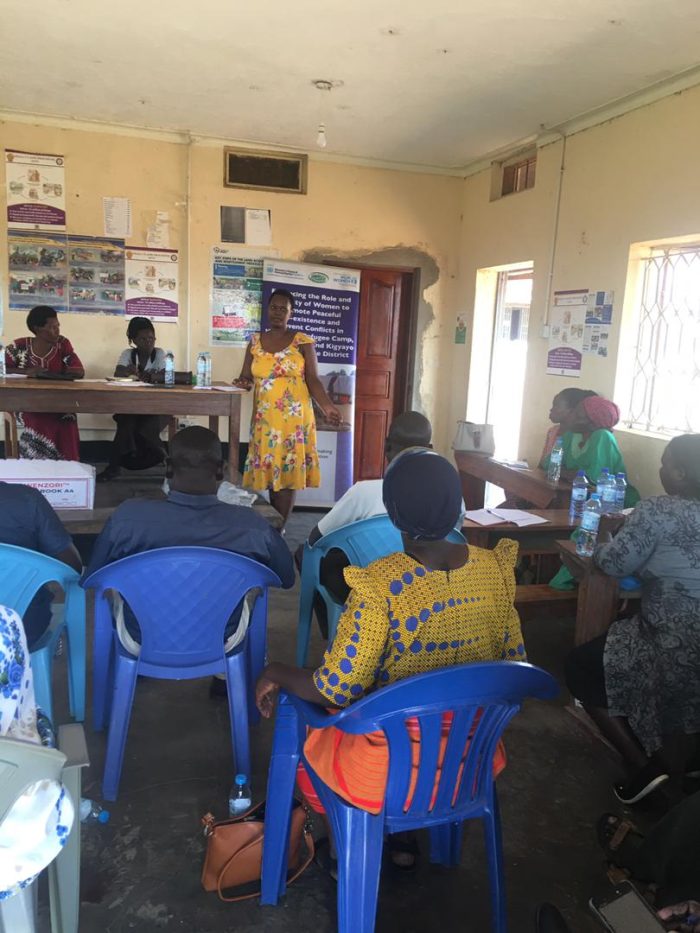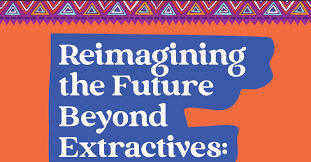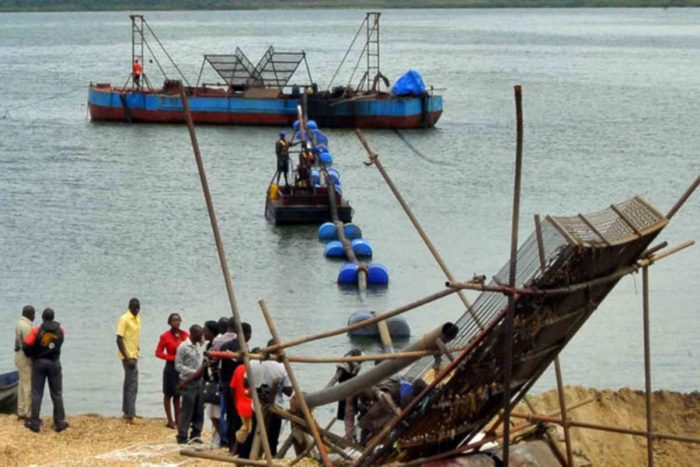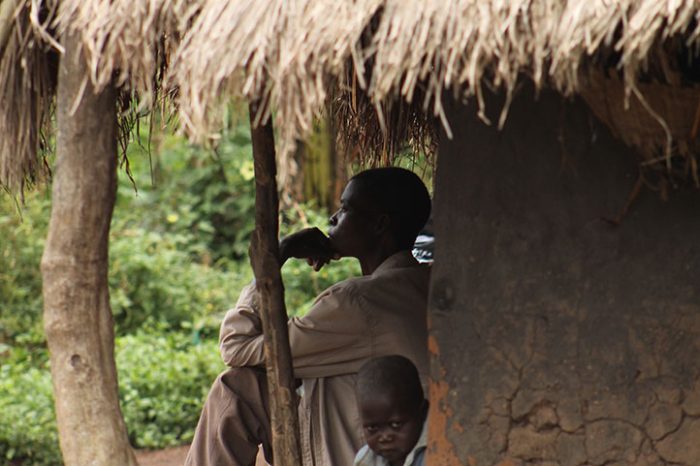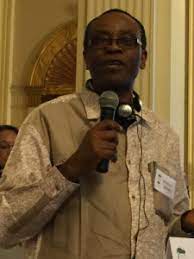Extractive industries
Oil is not a new discovery in Uganda and NAPE has known this since its formation 15 years ago. Oil discovery in Uganda dates back into the colonial times. NAPE’s Oil Governance Programme started in 2009, starting with monitoring of oil exploration,moving to political advocacy against oil extraction activities, and continuing to the advocacy for community rights and voices now that extraction activities have begun. Below we give a more detailed explanation of the programme.
Summary Back ground
A).When
The petroleum potential of Uganda was first documented by A.J Wayland in 1925 based on oil seepages he mapped at that time.
The first well “WAKI-B1” was drilled in Butiaba area in 1938. Further drilling was abandoned from them throughout 1940s 1950s,1960s 1980s due to World War 2 and the subsequent post-independence political Instabilities.
B). Commercial drilling
Was embarked on from 2000 and intensified in 2007 and so far exploration is at around 40% sub divided into 8 Oil Exploration blocks (EAS Rhino Camp Basin in the extreme north,EA1 Pakwach Bsin, Buliisa Discovery Area, Butiaba Discovery area, Kaiso Tonya Discovery area, Kingfisher Discovery area,Kanywataba Prospect area and EA 4B Lake Edward/George Basin Oil basin.
C). How much:
Estimates 3.5 billion barrels from with 1.7 billion barrels expected as recoverable oil
D). Process to Oil production:
Seismic Studies + Mapping+ Exploration + Production
E). Who is involved
Government (3 arms of govt) + Private Sector (Oil Companies-Tullow Oils PLc L, Total, , Dominion ,Eni-Italy, French Total oils Ltd, Chinese off shore National Oil Company (CINOC)+ Civil society + Public + Business Community
F). Biodiversity Richness of the Albertine Oil rift
- 39% of Africa’s mammal’s species
- 51% of African Bird species
- 19% of its amphibian species
- 14% of Africa’s Plants and reptile species
- 79 threatened terrestrial vertebrates according to IUCN red data book listings
- 60% of Uganda’s water bodies (lakes and rivers)
- 70% of Uganda’s protected areas with 7 out of the 10 National Parks in Uganda, 8 out of 15 forests, 12 Wildlife Reserves, 13 Wild Life Sanctuaries, and 5 Community Wild Life Areas.
G). Current issues of Concern in Uganda’s Oil and Gas Industry
- The fear of Future oil spills since some wells such as Ngasa 2 and the King fisher oil wells are located deep into Lake Albert in Hoima and their impact on fishing.
- Future oil pipeline routes, oil roads and their impact on biodiversity
- Oil drilling in protected areas of Kabwoya, Bugungu, Murchison, Semliki Valley, Edward George Oil blocks –Conflicts with Article 24 of the Wild Life Act.
- Land grabbing, forced evictions, human rights abuse championed by oil companies and military detachments in the area.
- Influx of refugees/people (Congolese, Rwandese, Sudanese and other local ethnic groups)
- Conflicts over control and use of the lake between Ugandans and Congolese
- Destruction of Cultural Heritage of Bunyoro Kingdom
- Oil Revenue sharing between Gov’t, Oil companies, Kingdom, Communities, etc (Where and what is the basis of the revenue sharing formula for determining the so called the Oil districts)
- Militarization of the oil region.
- Government passing un favorable laws such as the Public Order Management Law that is intended to provide a basis for cracking down on CSO activities in the oil region
- Anticipated carbon emissions expected to worsen climate change
- Capacity of oil host communities to engage on oil issues of concern
- Restricted access to park resources especially in areas where oil wells have been sunk (Locals collect hand craft materials, firewood, etc. Currently limited to 2 times a week.
H). Focus of NAPE’s Oil governance Programme in Uganda
NAPE’s Oil governance programme focuses on strengthening three thematic areas
- Strengthening Networking of oil host communities and oil host community advocacy groups-by hosting the Oil Watch Africa Network-Ugandan Chapter
- Sub granting to oil watch Uganda member groups
- Strengthening the advocacy capacity of oil host communities
- Strengthening the advocacy capacity of Bunyoro Cultural Institution to defend its cultural
- Amplifying voices of marginalized Women affected by oil companies
- Amplifying voices of the Youths to campaign for good governance of the oil and gas resources
- Oil information documentation and dissemination
- National level engagements on oil impacts (Human Rights abuses, Environmental degradations, Policy violations, Corruption, Oil and gas legislation, etc) with government, oil companies, and Other responsible government or private sector Authorities
- International engagements and collaborations on oil issues worldwide with partner international networks (Friends of the Earth International, Oil Watch Africa, Oil watch International, Human Rights Business Center, Human Rights Watch, International Union for the Conservation of Nature (IUCN) among others such as Global Witness.
Key Accomplishments for NAPE/Oil watch Uganda since 2008
- Following the approval of Tullow Oil’s EIA for Operation of a Mini-Oil refinery at Kaiso Tonya, NAPE & AFIEGO through this network Analyzed the EIA Addendum by Tallow Oil company and published the analysis in News –ref New vision January 27th 2010.This created debate that eventually to indefinite suspension of EPS.
- Oil watch has been able to register network members and conducted capacity building on oil in various oil host communities such as Kyapaloni, Nyaheira, Bugambe, Ngwedo, Biiso, Kaiso, Kabaale, Buseruka, Kabwoya, Kakindo, Wanseko, Sebagoro, Butimba, Nyamukuta, Bugoigo, etc
- Oil watch has been able to organize trainings for MPs on oil governance
- Oil watch has facilitated 3 trainings for its members on research and advocacy in promoting good governance in the oil sector
- The oil watch network in March 2010 facilitated an exchange visit for young people in Universities of Uganda into the oil region (Ngege ,Kasemene 1 and Ngala oil wells). This improved their capacity to articulate better social, economic and environmental concerns of oil on peoples livelihoods and the environment.
- Oil watch in May 2010 produced and distributed 3,000 copies of oil watch newsletters and stickers to different stake holders
- Oil watch in May 2010 facilitated a field visit for host communities from Nigeria,Cameroon,Ghana,South Africa to come and share experiences with oil host communities in Uganda
- Oil host communities and groups from Nigeria,Norway,Uganda,Camerron,Ghana on a tour of Nzizi gas field –May 2010 in Uganda.
- Oil watch in 2010 organized a field exchange for CSOs from DRC to visit host communities in the Albertine region as a way of promoting trans boundary CSO networking on oil
- Organized Oil Watch Africa AGM in Kampala with partner organizations from Uganda, Cameroon, South Africa, Sudan, Chad, Ghana, Norway, DRC, Angola, Guinea, Nigeria, etc
- Oil watch in 2012 and 2013 was able to advocate for putting in place new oil and gas legislations in place Upstream and middle stream Oil and gas laws.
- Publishing Weaknesses in Uganda’s tabled oil and gas legislations
- Oil watch Uganda has supported youths, Oil host communities, women to present petitions to parliament over various oil issues of concern including issues of land grabbing, human rights abuse, access rights. This has been done more in 2013 and 2014
- Training Oil host communities on EIAs for both oil pipelines and oil refineries
- Organizing Field visits and information exchanges between oil host communities and media journalists
- Published many articles on oil and its impacts on community livelihoods and the environment
- Supported Action oriented research studies on Oil
- Supported the Oil Community and Bunyoro Kingdom to do eco-mapping of Bunyoro cultural Heritage
- Supported Advocacy drama among oil host communities (Advocacy through artistic impressions (poems,Songs,plays) on oil and its impacts on both community livelihoods and biodiversity
Success Stories
- Engagement voices for the locals (Oil host communities) have been amplified.
- Locals have been able to organize themselves into communal land associations and acquired customary land certificates.
- Majority oil refinery and oil road affected communities have been able to get fair compensations
- Government of Uganda and oil companies were forced to back off Kabwoya wildlife reserve and abandon their plans of constructing a mini oil refinery in Kabwoya Wildlife Reserve.
- Oil host communities are now fairly involved in plans set up by government and the oil companies
- There has been victory against activities of Tullow oils and government. The company has suspended indefinitely further development of Ngasa 1 and Ngasa 2 wells that lie under Lake Albert. Ngasa 1 was sunk into a fault line while Ngasa 2 that lies deep into lake Albert has been abandoned due to environmental sensitivity and economic viability reasons
- Many villages have now woken up to start many tree planting pilots in preparation to fossil fuel induced climate change impacts.
- Oil refinery affected communities have been able to petition the speaker of parliament on land grabbing issues and some of their issues have been given redress.
- Journalists have been facilitated to interact with affected locals and as such, a number of news paper articles on oil have been written month after month, year after year.
- Communities are now very much aware and articulate on their land rights and property entitlements
- New oil and gas laws have been put in place i.e The Petroleum (exploration, Development and Production Bill also known as the Upstream Bill was tabled to Parliament on Wednesday 8th February 2012 and The Petroleum (Refining, Gas processing, Conversion, Transportation and Storage Bill also known as the Middle stream Bill was tabled to parliament on Tuesday 15th February 2012 and all the two have been passed into law in 2013. The Public Finance bill is also awaiting passing by the president.
NB: Despite the above successes, more oil and gas impacts in form of environmental abuses, human rights violations, land grabbing, environmental pollutions, corruption, conflicts ,policy abuse,etc are expected 2014-2020 as Uganda enters the Middle stream Phase of DEVELOPING THE OIL AND GAS INDUSTRY.

